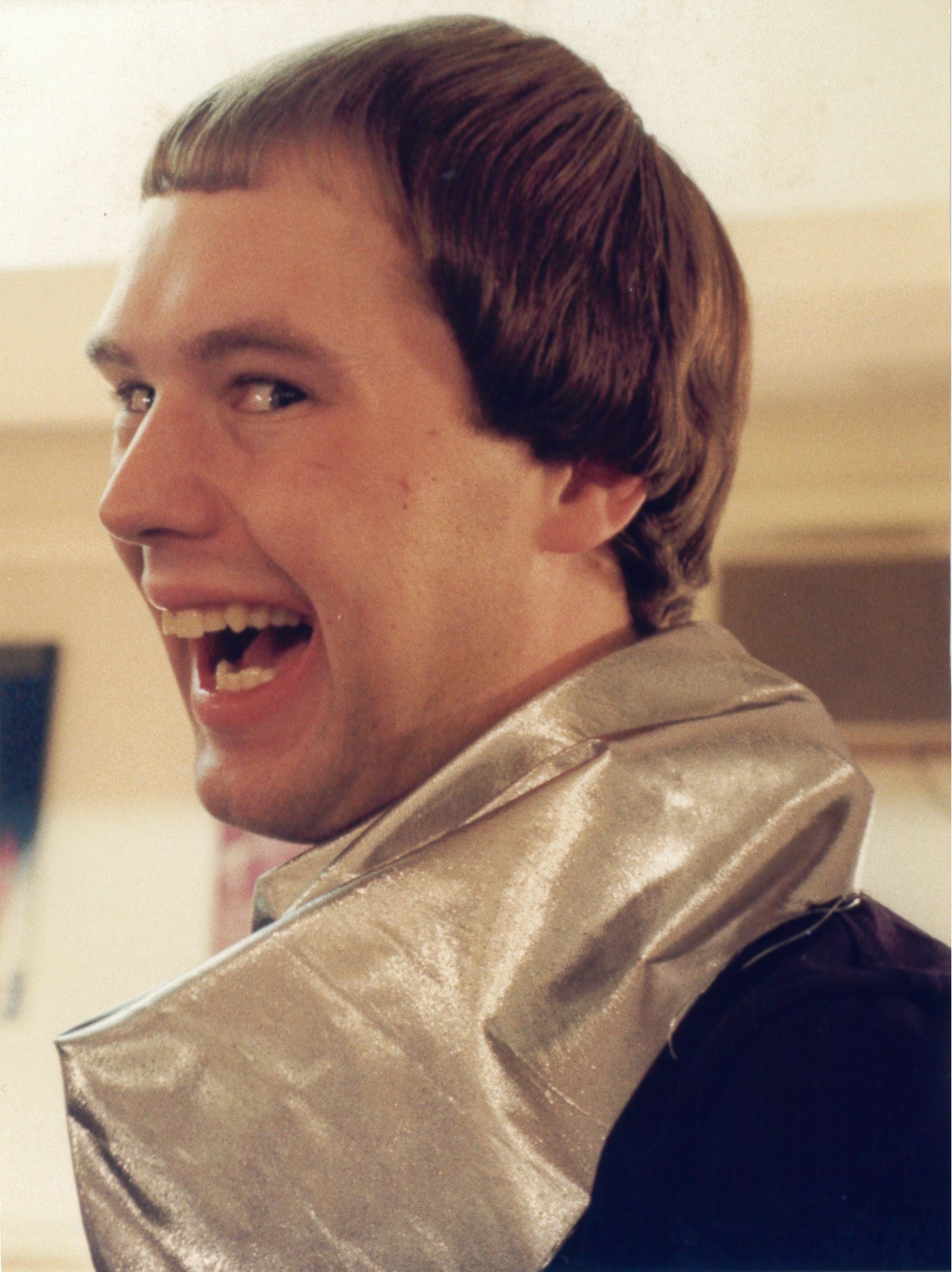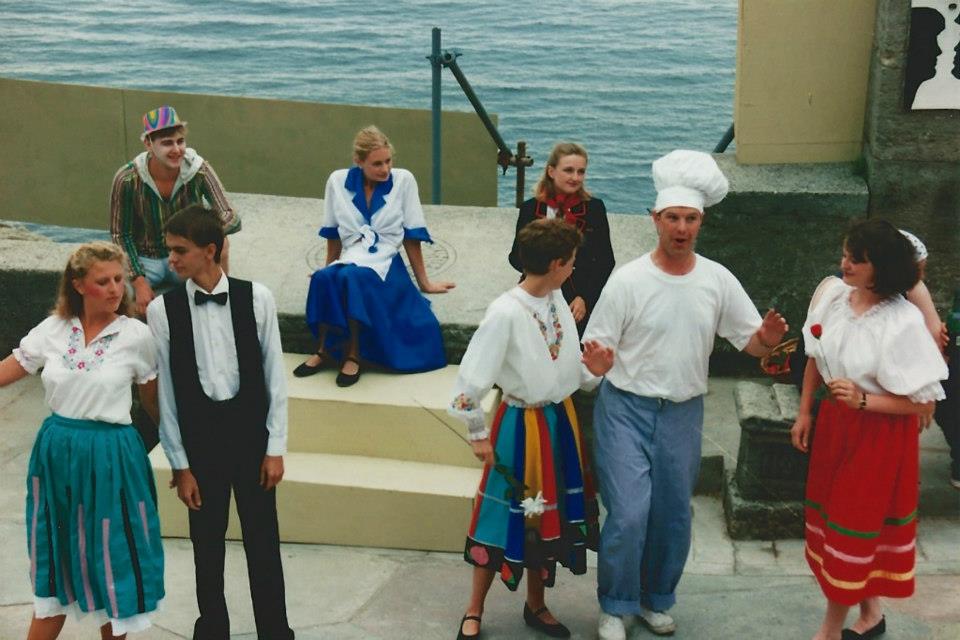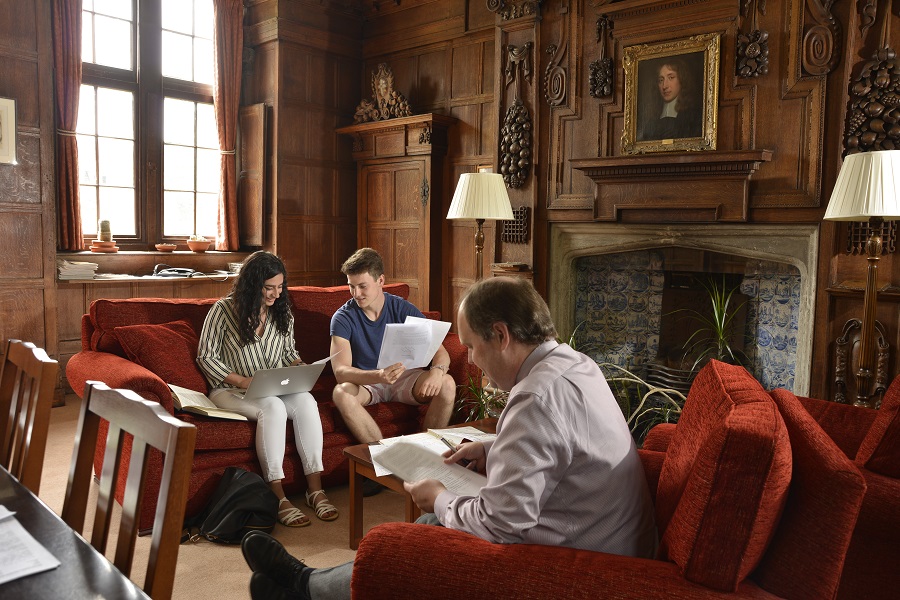Five things you might not know about Dr Robert Hunt, an accomplished performer, and Senior Tutor of Christ’s for the past 14 years.
1. He more than doubled postgraduate numbers to over 270
As Senior Tutor he also dealt with the educational impact of Covid, transformed mental health support for students, introduced many new studentships and bursaries, and oversaw consistently excellent academic results.
He is sure his successor will make their own mark:
“Hopefully they'll think that I've done a good job, but they'll also think ‘times are moving on and I've got new ideas I want to introduce’ and they'll do something new. That's certainly what I’d want.”

2. His new-found passion is Scottish country dancing
As a university student, he was a ballroom dancer, but his most recent interest is Scottish country dancing.
“I even own a kilt, despite the fact I have zero Scottish connections,” he says. That kilt is made in the Flower of Scotland tartan which is one of the few reserved for those without any Scottish clan.
He’s not a Strictly fan though. “In order to make good television, they're doing flashy moves rather than social dancing” he says of the television hit. For him the appeal is less flash, and more the opportunity to exercise and socialise.
3. He loves to teach
For many years he was a member and chair of the University’s Gilbert and Sullivan Society, and a keen thesp. No surprise perhaps that Dr Hunt won a Pilkington Prize in 2001 for his excellence in teaching including lectures.
But being Senior Tutor effectively relegated his research career to the back burner, he says, which is not something often discussed.
“Within universities, teaching often has a very low status compared to research and that's problematic for many people, but for me I don't regret it at all because I enjoy teaching so much.
I enjoy lecturing because giving a lecture is effectively a performance. You're trying to convey your enthusiasm for the subject.”

4. He was the first member of his family to go to university
He received full scholarships to attend school and then Trinity College Cambridge. After arriving in the family campervan and parking on the cobbles outside the College’s Great Gate, Dr Hunt walked through the small door to peer into Great Court.
“Oh! That looks all right. I think I can probably do three years here.”
In fact he stayed at Trinity for nine years, completing a PhD in theoretical fluid dynamics.
Years later as Christ’s Senior Tutor he held tea parties for parents dropping off their sons and daughters. He would tell them:
“My parents were a care assistant and BT engineer, so I know that Cambridge is not about being posh. If you've got the ability then you can get here and you can succeed.”
5. The younger you are, the older the maths you learn
Most people don’t know that the maths learned in primary school is over 2000 years old. As you move through school the maths studied becomes more recent. University maths is very different.
“When you come up to university suddenly the maths becomes much more abstract and intellectually challenging, and so it’s not so much solving problems as actually getting your head around some really deep abstract concepts.”
Next year Dr Hunt plans to write a textbook about ‘complex’ numbers - also known as ‘imaginary’ numbers. Most people don’t know what they are and the idea may sound strange but ‘imaginary’ numbers are very useful in all branches of the sciences, he says.

Dr Hunt stepped down as Senior Tutor in January 2023. He continues as Fellow, Tutor, and Director of Studies in Mathematics.

